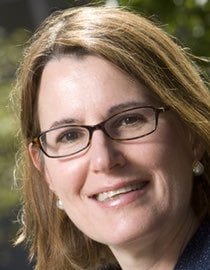
By Andrew Cohen
For nearly 15 years, Professor Chris Hoofnagle has helped Berkeley Law keep pace with the dizzying pace of technology advancements. Now, he’s providing students with a new and increasingly vital skill set.
Computer Programming for Lawyers, one of eight new courses offered by Berkeley Law this semester, recognizes growing trends in the legal marketplace: Clients want lawyers to understand their products and services on a technical level; regulators must understand how their rules will be implemented in code; and attorneys need tools to automate the process of collecting, organizing, and clarifying massive troves of information.

“Programming instincts will pay off in practice, from conducting depositions with engineers to conceptualizing remedies for technology harms,” Hoofnagle says. “The most closely related legal tasks are investigations and eDiscovery. There’s also an entire field developing known as ‘legal informatics’ that will push the boundaries of what legal practice computers can perform.”
Starting next week, the course will begin teaching how to work within Python, a high-level programming language. While learning coding process fundamentals and the importance of data storage, students will explore legally relevant questions by using the same tools data scientists employ to collect, organize, and clean data.
One of the nation’s leading privacy law experts and a staple of Berkeley Law’s top-ranked intellectual property law program, Hoofnagle wants lawyers to understand how computing might disrupt legal practice and even governance. He will teach students about the logic of computer reasoning and contrast it with legal reasoning.
“As a process, computer programming is similar to legal methods,” he says. “One identifies problems, decomposes them into smaller problems, solves those smaller problems, and rolls their results into a conclusion. Of course there’s a big difference between what is computable and the richness of human understanding. The risk we face collectively as a profession is a future where we discount that richness in favor of ‘good enough’ results from a computer.”
Students will complete in-class labs and problem sets to help hone their coding skills, probing how the procedure and substance of legal decisions would change if more of the law became more “legible” to computers.
“We have exercises that are legally relevant,” Hoofnagle says. “For instance, imagine using software to analyze the similarity or originality of all comments in an administrative record so that you could focus your attention on the most important submissions.”
Other new spring semester courses include:
Public Health Law, taught by Professor Stephen Sugarman and Marice Ashe, teaches how constitutional and administrative law is integrated with science, systems thinking, community organizing, and organizational leadership. Students will learn how health is inextricably linked to the legal authority of federal, state, and local governments — including legal and civic structures embedded in structural racism and historic discrimination.
Consumer Financial Regulation, taught by Professor Manisha Padi, provides an interdisciplinary overview of consumer finance as more households face mounting financial pressures due to mortgages, student loans, credit cards, healthcare, long-term care, and inadequate retirement income. Students will learn about the economic underpinnings of how consumers make financial decisions and consumer protection efforts targeting financial products.
Introduction to Negotiations, taught by Jeanine Becker, will develop students’ understanding of negotiation, amplify self-awareness of their individual negotiating styles, and offer beginning tools and concepts for analyzing and preparing for negotiations. Students will also learn about key theories, practice through role play, and learn from experience through reflection and feedback.
Human Rights and Social Justice Writing Workshop, taught by Clinical Professor of Law Emerita Carolyn Patty Blum and Human Rights Center Faculty Director Eric Stover, provides an opportunity to prepare a written piece suitable for publication. Students will examine how human rights form a body of domestic and international law that seeks to promote human dignity, equality, and justice in far-reaching ways.
People, Prisons and the Pandemic, taught by Professor Charles Weisselberg, will examine the plight and treatment of individuals detained in prisons, jails, and detention centers during the COVID-19 pandemic. Topics include efforts to address the crisis through litigation, legislation, early release, non-prosecution or diversion, bail, and implementing safety measures and medical care within carceral institutions.
The Future of Asylum: The Case of the U.S.-Mexico Border, taught by Lecturer in Residence Kate Jastram, will explore the past, present, and future of the international refugee regime using the U.S.- Mexico border as a case study. Students will probe the international and domestic law rationale for having an asylum system, and assess measures taken by the U.S. government since 2017 to deny access to territory and procedures — as well as efforts to counter those steps.

Mediation Practicum, taught by mediator Norma Darshan Brach, offers students the opportunity to remotely mediate one or more commercial lease renegotiations for business owners and landlords impacted by COVID-19. Students will take a commercial lease training and a mediation preparation training, and submit a substantive memo reflecting on the challenges and learning associated with their experience.
In addition, eight one-credit classes launched in the fall for 1Ls are now being offered to upper-class students: Food Justice, The Code of Capital, The Law and Economics of Complexity, The Supreme Court Confronts Climate Change, Regulating Internet Platforms, Intro to Information Privacy, Lawyering in the Public Interest/Public Sector World, and Civil Liberties in a Pandemic.
The mini course Movement Lawyering from the Inside Out, taught by East Bay Community Law Center Clinical Director Seema Patel ’06 and Thelton E. Henderson Center for Social Justice Executive Director Savala Trepczynski ’11, is one of several spring classes with a focus on racial justice.
“We’re excited to be offering a broad array of new cutting-edge courses this spring,” says Susan Whitman, assistant dean for academic planning and coordination. “We are so fortunate at Berkeley Law for the breadth of our faculty expertise in areas of such interest to students and of benefit to their training as lawyers.”